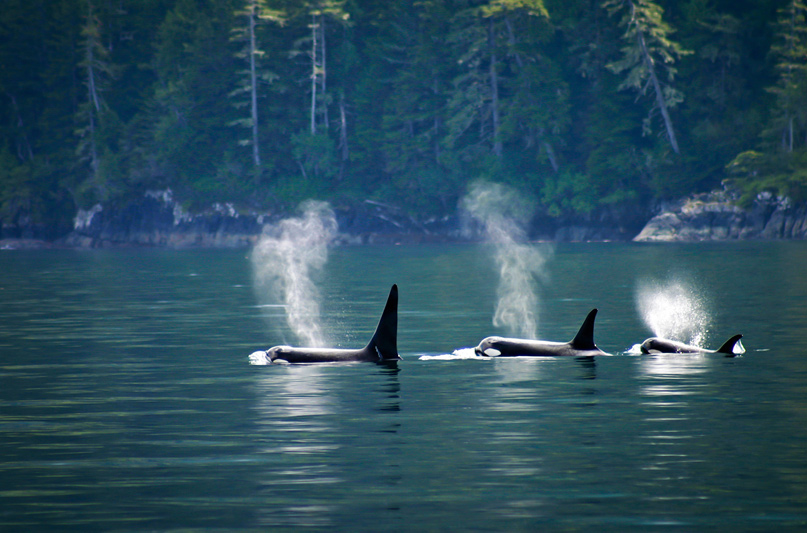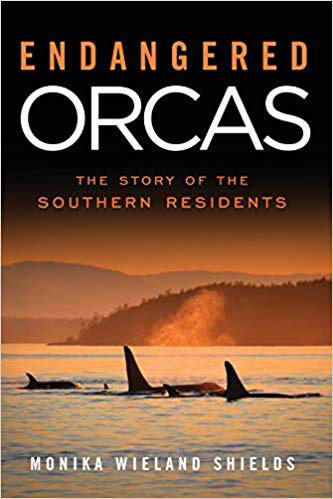
Even taken with a healthy dose of skepticism, recent reports about the devastation facing our planet are alarming. It is easy to see a near future in the Northwest devoid of healthy salmon runs and orcas as the Salish Sea and its tributaries warm and become less compatible with our iconic sea life. It’s also no secret that the Southern Resident Killer Whales (SRKWs) in Puget Sound are in trouble.
Monika Wieland Shields’ Endangered Orcas: The Story of the Southern Residents is not an uplifting read. It is, however, an important book that chronicles the complex relationship between marine mammals and human development and culture. As boaters, we have a front row seat of the majesty and the tragedy these majestic animals showcase. That makes us their most likely and powerful advocates. It also makes us a part of the problem.
Endangered Orcas isn’t a book that preaches about climate change or even takes a remotely political position. It is a factual account of the SRKWs’ tenure in the Salish Sea, before large scale human development and after. The news isn’t good.
No image is more iconic in the Northwest than that of the orca. The temptation to get close, to snap that perfect photo of a pod moving effortlessly through calm water, is just too much for most of us to resist. This book carefully points out this irony of our love for these whales. We believe ourselves to be the keepers, the stewards, and family of the three SRKW pods. But our affinity for them is part of what has placed them in danger.

We also tend to think we understand the plight of the orcas. Few of us do. The complex web of issues facing all marine life in the Salish Sea is laid out here by Shields. Her writing is a balanced combination of history, science, politics, and observation. She asks important questions to show that every stakeholder needs to act aggressively to make a difference. It is sobering to realize that in many ways the die is cast. The human population concentration and growth in the region is simply in conflict with orcas.
Yes, the changing climate and large-scale environmental issues are part of the issue. Yes, shrinking salmon runs and introductions of non-native species play a role. But so do we. Every time we cast off the dock lines for a cruise in the waters these whales call home, we put pressure on them. Every new boat on the water, every cruise ship plying Admiralty Inlet, every ferry crossing from Edmonds to Kingston, and every whale watching excursion effectively shrinks the orca’s environment.
There is hope. Scientists know what the biggest dangers to the SRKWs are. In the short term, we will still be wowed by pods showing up unexpectedly off Alki Beach. There will be SRKWs for your friends to go see on their trip to Seattle. But the long-term outlook isn’t good. One thing this book makes clear is that we are at a tipping point with these majestic animals, and we have to find ways to advocate for them without inadvertently doing more damage. We are well beyond the “awareness” portion of the program. More cameras pointed at whales are not helping.


